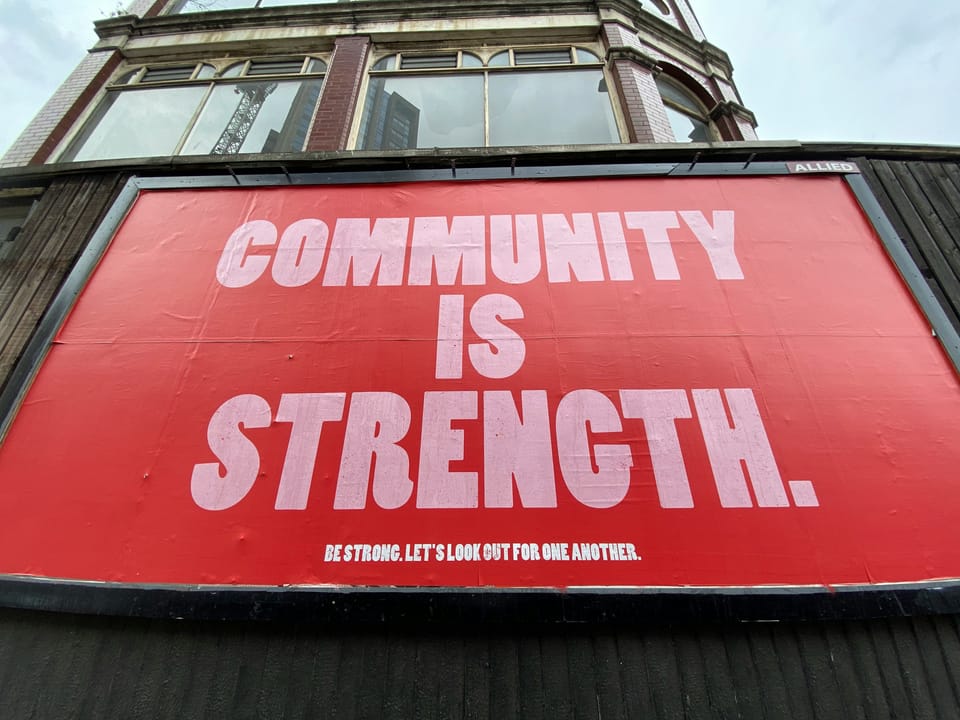The loss of community in open science: a sign of a failing movement?

Open Science (OS) is a movement that aims to bring about a change to the academic publishing system. Yet, despite being around for over 30 years, it has had relatively limited success. Traditional publishers still dominate the landscape, article processing charges have made publishing less equitable and the whole system is straining under the pressure of increased numbers of papers and a reduced reviewer pool. The impact of artificial intelligence has been to exacerbate these issues whilst highlighting the limitations of the traditional system.
So why has this movement had limited success, despite existing for a long time?
Part of this answer is that the movement has on too many occasions allowed traditional publishers to hijack efforts. Part of the answer is that the effort has suffered from a lack of cohesive leadership. But another reason is that the movement has consistently failed to understand and sufficiently drive cultural change.
Cultural change requires consistent and long term effort that is focussed on individuals and relationship building. The lack of this focus has meant that a number of brilliant efforts for new open infrastructure or attempts to change publishing have failed. This also requires authentic, strong leadership. This has been largely missing from the open science movement and in recent years there have been significant missteps from some of the biggest voices. For example, the Center for Open Science released a highly flawed paper about pre-registration that failed to follow its own pre-registration. The response from some of the authors caused damage to the wider movement. The open science movement has also witnessed the forcing out or otherwise loss of some key voices from the movement. This homogenising of personalities is resulting in a movement that is increasingly lacking critical thinking and diverse viewpoints. There is also increasing resistance to criticism of those within the movement, further homogenising the ideas and approaches. This has the potential to cause significant problems moving forward.
Loss of community
Community is often the first thing to be lost during periods of financial pressure. Community efforts can be viewed as having no direct impact on revenue generation, are difficult to measure, are too challenging to implement successfully and are generally poorly understood by academics and those in the open science space.
There is a graveyard of previous open science community efforts that have ceased operating following funding and sustainability difficulties. OpenCon was a successful global conference for early-career researchers advocating for open access, open education, and open data. It was explicitly community-driven, offering scholarships, unconferences, and local satellite events around the world. Despite its outsized impact, OpenCon was discontinued in 2019 due to funding and sustainability issues, leaving a vacuum for the next generation of advocates.
Mozilla Science Lab was highly influential in the early 2010s and fostered a community around open research and open source software. Some of the current leaders in the open science movement were previous Fellows. However, Mozilla ended this effort in 2018.
This year, there have been some significant redundancies and loss of leading voices from advocacy and training organisations. This isn’t just an issue with specific organizations. Funding bodies also rarely fund community focussed efforts. This can often result in the long term wasting of funding when new projects subsequently fail to realise their potential. However, the success of community efforts can be hard to measure, as it is difficult to collect evidence as to the impact of such efforts.
The recent political destruction of science in the USA should be highlighting the importance of more diverse views and leadership from other regions. Indeed, this is an excellent opportunity to shift the historical dominance of the USA-centric approach to open science and create a more genuinely equitable approach.
Why this is a mistake
Community is not a nice-to-have; it is the foundation of lasting cultural change. Without it, open science efforts will always be fragile, vulnerable to budget cuts, leadership shifts, and the gravitational pull of traditional publishing models.
Top-down approaches can deliver short-term wins such as new infrastructure, new policies and new mandates but they rarely change behavior at scale. When individuals feel excluded from the process or treated as passive recipients of change, their engagement drops. They comply, at best, but they do not champion. This is highlighted in the number of declarations that have been made in the past few years which have received more virtue-signalling than real implementation. Movements cannot survive on compliance alone.
Community solves this problem as it creates ownership. When researchers, librarians, technologists, and students feel like they are part of shaping open science, they become advocates. They bring energy, creativity, and accountability. They hold leaders to higher standards, challenge blind spots, and keep the movement honest. These are the intangible but vital forces that policies and infrastructure alone can never generate.
The dismissal of community also reflects a deeper misunderstanding: change in academia is not just technical, but cultural. We are not simply rearranging workflows or building platforms. We are asking individuals to rethink long-standing practices, question entrenched hierarchies, and embrace openness in environments that often reward the opposite. That kind of shift requires trust, dialogue, and human connection—precisely the things that community fosters.
Is this a sign of a failing movement?
Failing? No. Faltering? Yes. This is definitely a signal that the movement is taking a troubling turn. From the forcing out of key voices to the installation of people who don’t want real change, the movement is shifting from grassroots and evidence driven approaches to one of opinion and the top-down forcing of these.
There are also a range of other efforts in the open science movement where community efforts are thriving. For example, there are community efforts around reproducible code and increasing rigor (Community 4 Rigor) or emerging communities in other regions (Africa Reproducibility Network). Such efforts are highlighting that not all is lost just yet.
Cultural shift is urgently needed and this cannot be achieved with behaviour and efforts that isolate, rather than build and collaborate with researchers. The movement needs to reconsider the current effort and direction or risk failing.

Comments ()